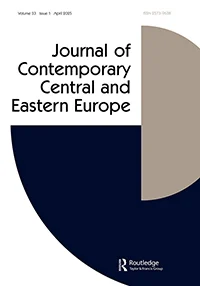Journal of Contemporary Central and Eastern Europe – Published online: 23 May 2025
Abstract
Literature finds convergence between Western and Eastern Europe in terms of formal macro-economic and social indicators since the end of the last century. Yet, the East-West difference in Europe is still significant. In parallel with the European convergence process, the social preferences have been changing since the turn of the millennium, moving beyond the 20th century paradigm of economic growth. The changing concept of development is reflected in the increasing concerns about the social and environmental conditions, which have led to the multiplication of alternative development indicator sets. In accordance with this paradigm shift, the paper aims to analyse the wellbeing and environmental performance of four Central and Eastern European countries, collectively referred to as the Visegrad countries, namely the Czech Republic, Hungary, Poland and Slovakia, from the second half of the 2000s until the end of the 2010s. It also analyses the pre-pandemic social conditions at the NUTS2 regional level. The findings indicate that, in order to enhance the quality of life, the Visegrad countries should prioritize the social and environmental dimensions of development, rather than solely focusing on economic growth.
Keywords: Central and Eastern Europe, Visegrad countries, sustainable development, quality of life, environmental impact



